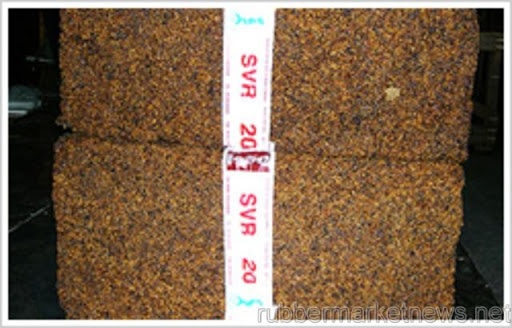 Singapore (march 13, 2011) : some cargoes of thai, indonesia and malaysian tyre grades changed hands around $5 a kg, but the rubber market was deserted after prices plunged 10 percent in nearly a month as speculators unwound positions on tokyofutures, dealers said on tuesday.
Singapore (march 13, 2011) : some cargoes of thai, indonesia and malaysian tyre grades changed hands around $5 a kg, but the rubber market was deserted after prices plunged 10 percent in nearly a month as speculators unwound positions on tokyofutures, dealers said on tuesday.
the rapid decline in prices reignited worries of a repeat of defaults and cancellations a few years ago, which were blamed on volatile rubber prices and the state of the global economy. "we hear a few big dealers are hammering the japanese market down in order to buy the physicals," said a dealer insingapore.
"i don't know how true that is, but the market is now dropping on the back of no real negative factors." the most active contract on tocom, currently august 2011 dropped more than 8 percent to a low of 416.5 yen a kg, its lowest since late december.
the contract hit an all-time high around 535 yen in february before profit taking kicked in, while worries that soaring oil prices could weigh on global economy also spurred selling. indonesia's sir20 was traded late on monday at 222 us cents a pound ($4.89 a kg), while malaysia's smr20 changed hands at around $5.03 a kg for april - all below record prices.
benchmark thai was done at $5.79 a kg for may, while april was offered at $5.70 on tuesday, down from a record at $6.40 in mid-february, when persisting worries about supply and erratic weather forced suppliers to scramble for raw material. thai str20 was traded at $4.98 to $4.99 for april.
buyers in top consumer china stunned the market late in 2008 when they refused to pay for their cargoes after prices plunged more than half from their peaks in the wake of a global economic meltdown that drove automakers in europe, north america and japan to their knees.
in early 2009, at least three major tyre makers cancelled their long-term contracts to buy indonesian rubber in an unprecedented move to reduce supplies as a global economic downturn slashes auto demand. "we offered sir20 last night but we didn't strike any deals," said a dealer in indonesia's main growing island of sumatra. "we haven't heard about defaults and i just hope it won't happen." late last year, indonesian rubber sellers asked buyers in china and india for down payments of up to 20 percent to dispel default fears triggered by any fall in physical prices from highs.
weekahead looking ahead, dealers expected tight supply during the dry wintering season to offer support to tokyo futures, which set the tone for physical prices, but some dealers would be careful about striking deals. "i am sure most dealers and producers are very cautious of who they sell to after 2008," said the dealer in singapore.
"i must admit i am at a loss as to why the market is falling so violently. we were expecting a correction but not to this extent especially because the dollar is weak, consumer still needs nearby rubber and we are heading towards wintering." global natural rubber output will rise nearly 5 percent in 2011, a senior economist of the anrpc grouping ofrubber-producing nations said on monday, lower than 8 percent targeted by their governments, as record prices take their toll on yield.


























0 comments